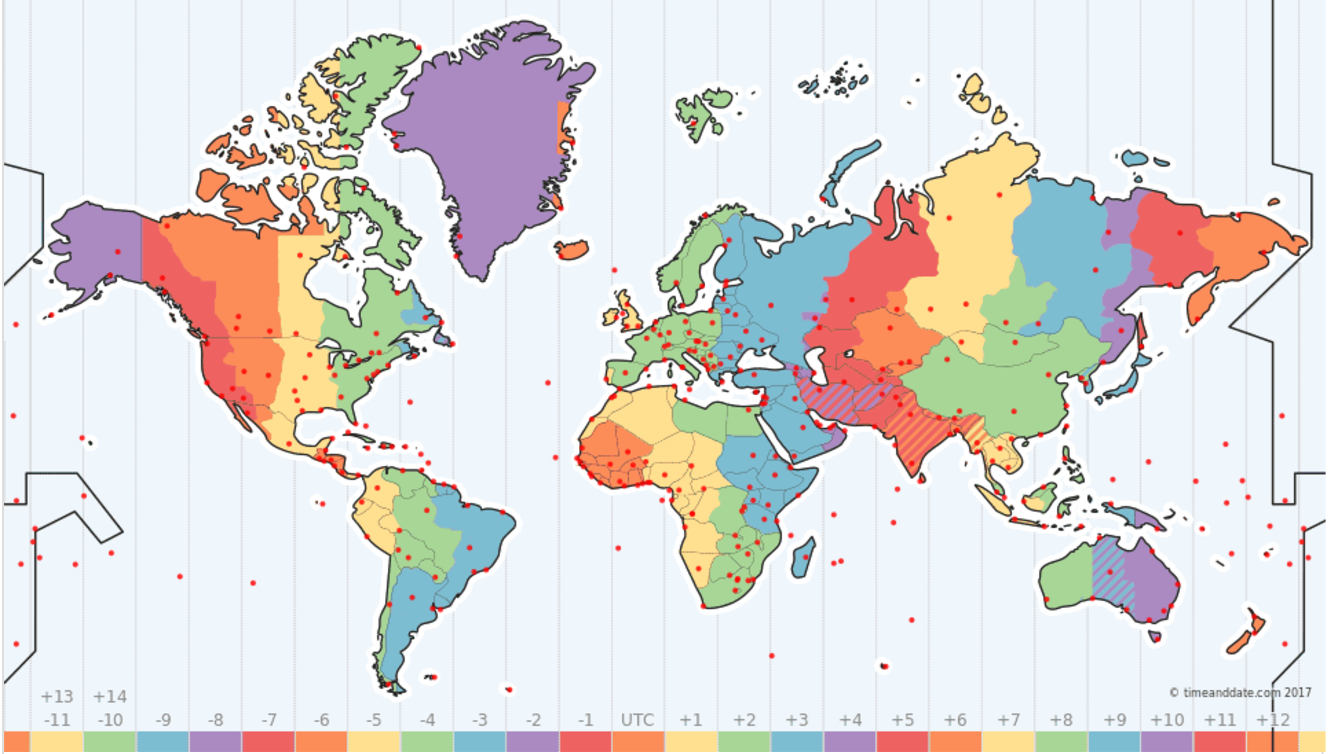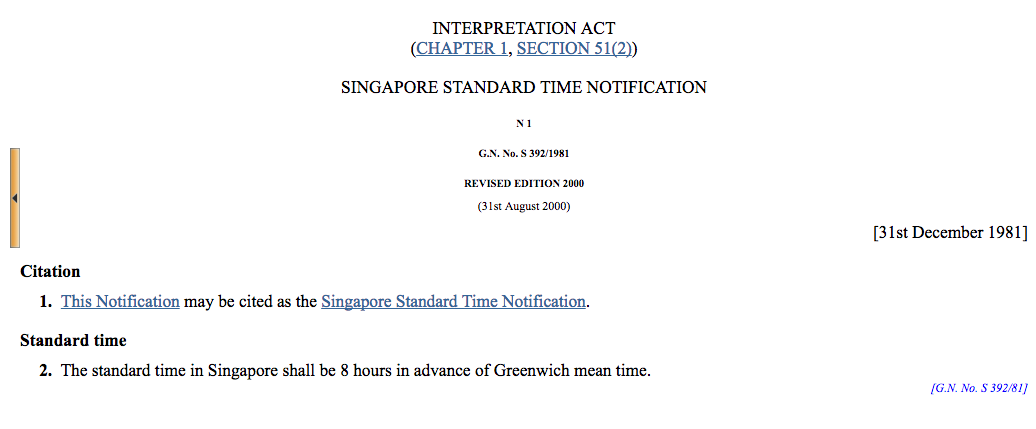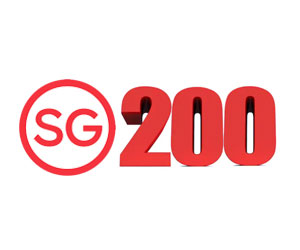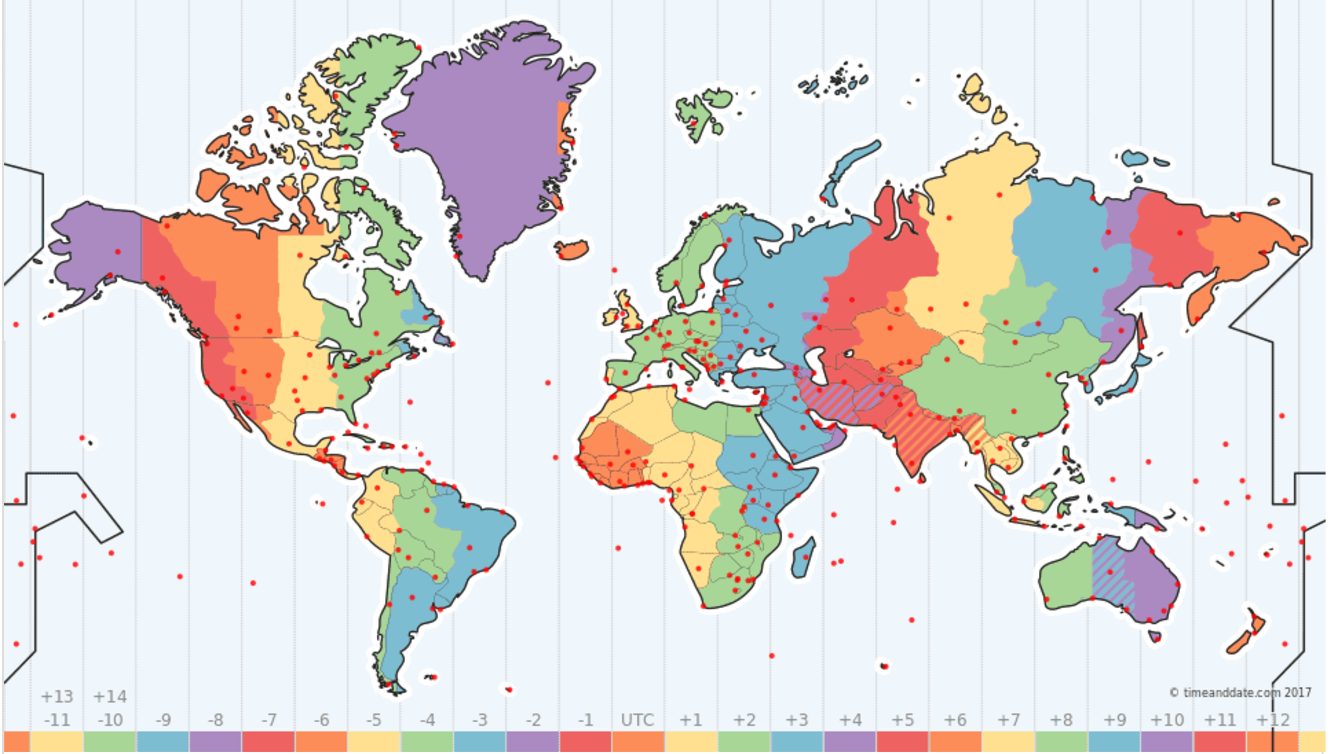Singapore Standard Time is eight hours ahead of GMT (GMT +8).
If all of this sounds Greek to you, GMT stands for Greenwich Mean Time, which sets out the world's different time zones based on longitude.
At 0° longitude, Greenwich in London is the reference point for determining time all over the world.
The world is divided into 24 time zones in relation to GMT (+0):
 Photo from Time and date
Photo from Time and date
If you look closely, the geographical location of Singapore lies somewhere in the GMT+7 zone.
But, our clocks are officially set at 8 hours ahead of GMT (GMT+8).
Aren't we in the wrong time zone?
Perhaps.
Singapore "Standard Time" has actually changed several times throughout the course of the 20th century.
Here's a table illustrating the changes:
 Screenshot of table done by Mok Ly Yng
Screenshot of table done by Mok Ly Yng
1933-1942: Daylight Saving Time
When Singapore was under the British, a bill was proposed to adopt Daylight Saving Time just like in England.
The proposed time was 30 minutes forward of the mean time, i.e. 7 hours 30 minutes ahead of GMT.
However, the Legislative Council found 30 minutes to be too large a shift and compromised on 20 minutes instead.
On Jan. 1, 1933, the Daylight Saving Ordinance came into effect with Singapore's time set at 7 hours 20 minutes ahead of GMT.
Eventually, the Daylight Saving Ordinance was amended to 30 minutes ahead.
What this meant was that Singapore time would be 7 hours 30 minutes (instead of 7 hours 20 minutes) ahead of GMT.
The amendment came into effect in 1941.
1942-1945: Japanese Occupation
During the Japanese Occupation, Singapore time moved ahead by 1 hour 30 minutes to conform with Tokyo Standard Time, which is 9 hours ahead of GMT.
1945 to present: Post-WW2 and independence
After the war, Singapore time reverted to 7 hours 30 minutes ahead of GMT.
However, there was one final change in store for Singapore time.
In 1981, Malaysia declared that West Malaysia would move their clocks ahead by 30 minutes to match the time in East Malaysia (eight hours ahead of GMT).
Singapore announced that it would follow suit, as a press release from the Ministry of Trade and Industry explained:
“In view of the many close ties between the peoples and governments of Singapore and Malaysia, and to avoid inconvenience to businessmen and travellers, the government has decided that Singapore will also adjust its present time half an hour ahead on 1 January 1982 so that both countries have a common time zone."
These pragmatic reasons explain why Singapore time is eight hours ahead of GMT despite our geographical location.
This setting of Singapore Standard Time was legally documented in the Singapore Statutes:
 Screenshot from Singapore Statutes Online
Screenshot from Singapore Statutes Online
Cool.
Top photo from Time and date.
 #SG200 is not a celebration. It's a commemoration. What's the difference? Click the logo. Maybe these articles might help.
#SG200 is not a celebration. It's a commemoration. What's the difference? Click the logo. Maybe these articles might help.
If you like what you read, follow us on Facebook, Instagram, Twitter and Telegram to get the latest updates.
